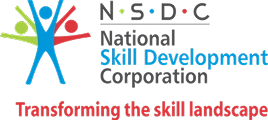Course Design By
Nasscom & Wipro
Aspiring QA professionals
Software developers looking to enhance their testing skills
IT graduates seeking a career in software testing
High Demand for Skilled Professionals: The IT industry in Chennai is booming, leading to a high demand for skilled software testers. Completing a software testing course in Chennai equips professionals with the necessary skills to meet this demand.
Comprehensive Curriculum: The best software testing institute in Chennai offers a comprehensive curriculum that covers all aspects of software testing, including functional testing, regression testing, system testing, and automation testing. This thorough training ensures that students are well-prepared for the job market.
Experienced Faculty: The software testing coaching in Chennai is conducted by experienced professionals who bring real-world insights and practical knowledge to the classroom, enhancing the learning experience.
State-of-the-Art Facilities: Institutes offering software testing training in Chennai are equipped with state-of-the-art facilities, including the latest testing tools and technologies. This hands-on training environment helps students gain practical experience.
Strong Industry Connections: The software testing classes in Chennai often have strong connections with leading IT companies, facilitating internships, placements, and job opportunities for students.
Affordable Education: Compared to other major cities, the cost of education in Chennai is relatively affordable, making it accessible to a broader range of students.
Thriving IT Hub: Chennai is a thriving IT hub with numerous tech companies and startups, providing ample job opportunities for software testers. Completing a software testing course in Chennai significantly enhances employment prospects in this vibrant market.
Identify application requirements: Learn the best practices, testing strategies, which methodology to follow, and the best testing type.
Design and execute test cases: Carefully inspect the business requirement documents to design and execute effective test cases.
Conduct different types of testing: Gain expertise in functional testing, regression testing, system testing, selenium testing, and more.
Enhance communication skills: Learn how to communicate effectively with stakeholders and other team members.
Technical communication: With sound technical knowledge, communicate with solution architects, SMEs, or app developers.
Automate manual testing: Use various testing tools to automate manual testing processes.
we train you to get hired.

By registering here, I agree to Croma Campus Terms & Conditions and Privacy Policy
+ More Lessons
Course Design By

Nasscom & Wipro
Course Offered By

Croma Campus

Stories
success
inspiration


career upgrad


career upgrad


career upgrad


career upgrad
12-Jul-2025*
14-Jul-2025*
09-Jul-2025*
12-Jul-2025*
14-Jul-2025*
09-Jul-2025*

You will get certificate after
completion of program

You will get certificate after
completion of program

You will get certificate after
completion of program
in Collaboration with






Empowering Learning Through Real Experiences and Innovation

we train you to get hired.

Phone (For Voice Call):
+91-971 152 6942WhatsApp (For Call & Chat):
+91-971 152 6942Get a peek through the entire curriculum designed that ensures Placement Guidance
Course Design By


Course Offered By

Ready to streamline Your Process? Submit Your batch request today!
Numerous institutes in Chennai offer comprehensive software testing courses. You may enroll at Croma Campus.
Software testing classes in Chennai cover both theoretical and practical aspects of manual and automated testing.
Software testing coaching in Chennai provides personalized guidance and helps strengthen your testing skills.
The best software testing institute in Chennai is one that offers updated curriculum, experienced faculty, and good placement support.
Software testing training in Chennai enhances your knowledge, skills, and employability in the IT industry.

FOR QUERIES, FEEDBACK OR ASSISTANCE
Best of support with us
For Voice Call
+91-971 152 6942For Whatsapp Call & Chat
+91-9711526942